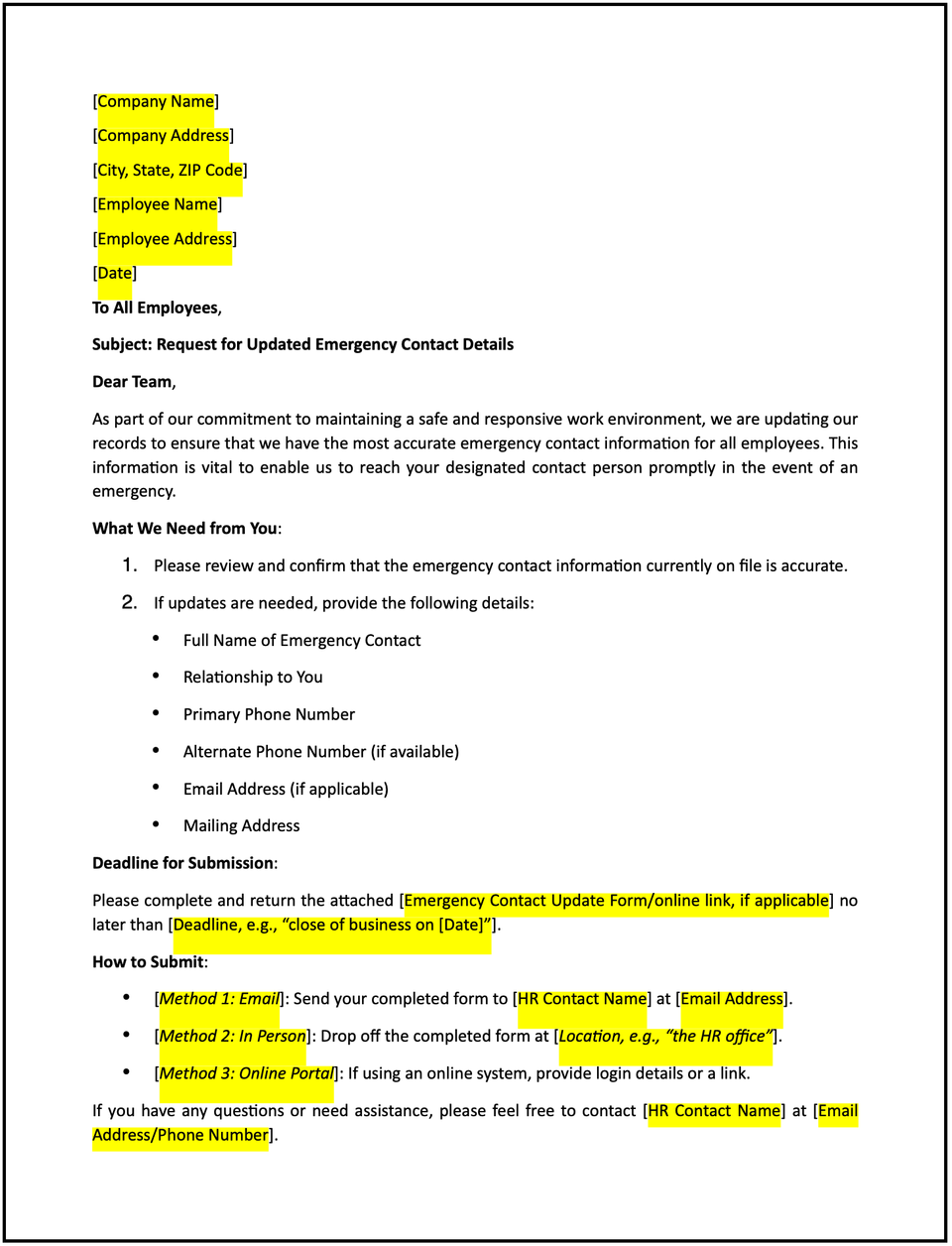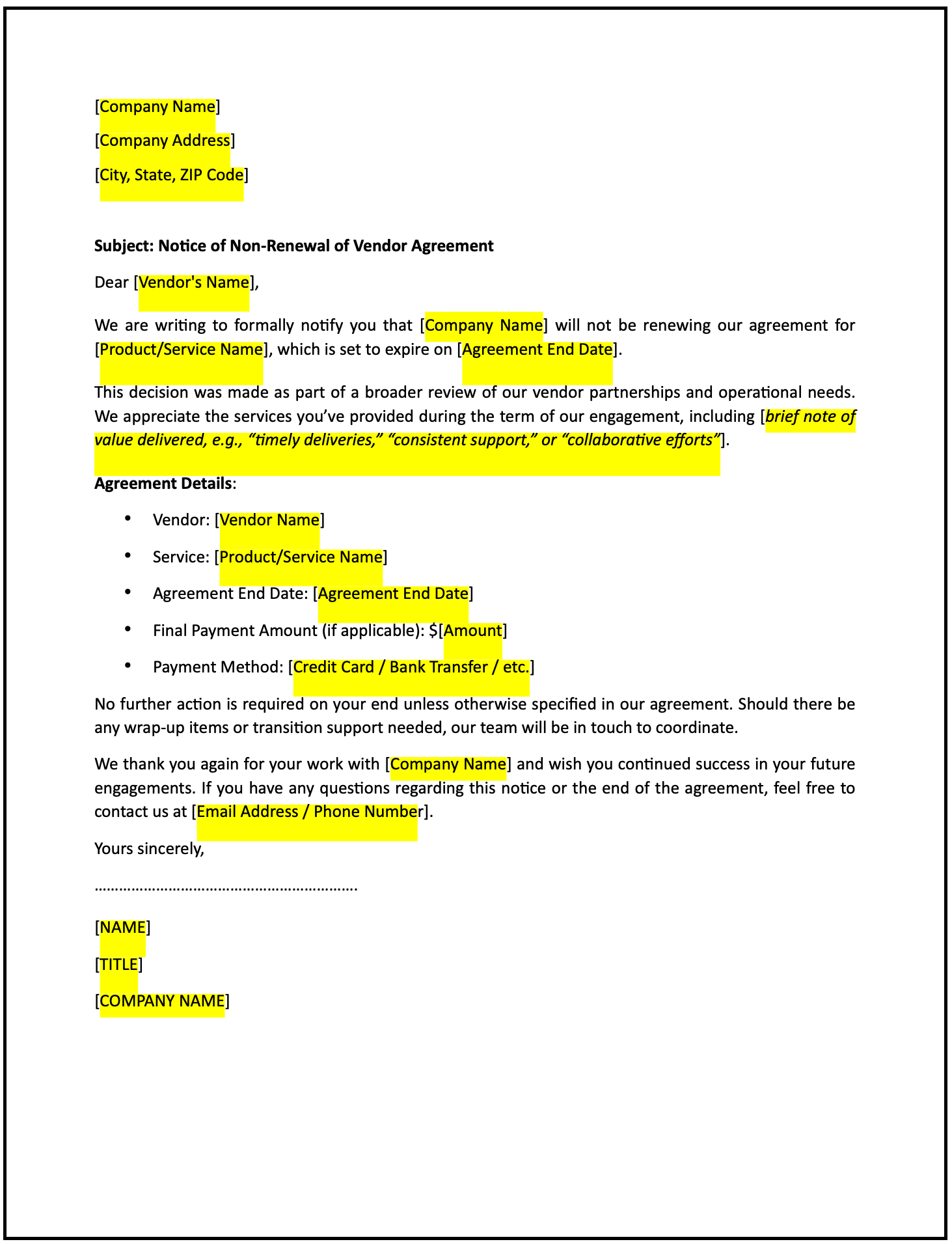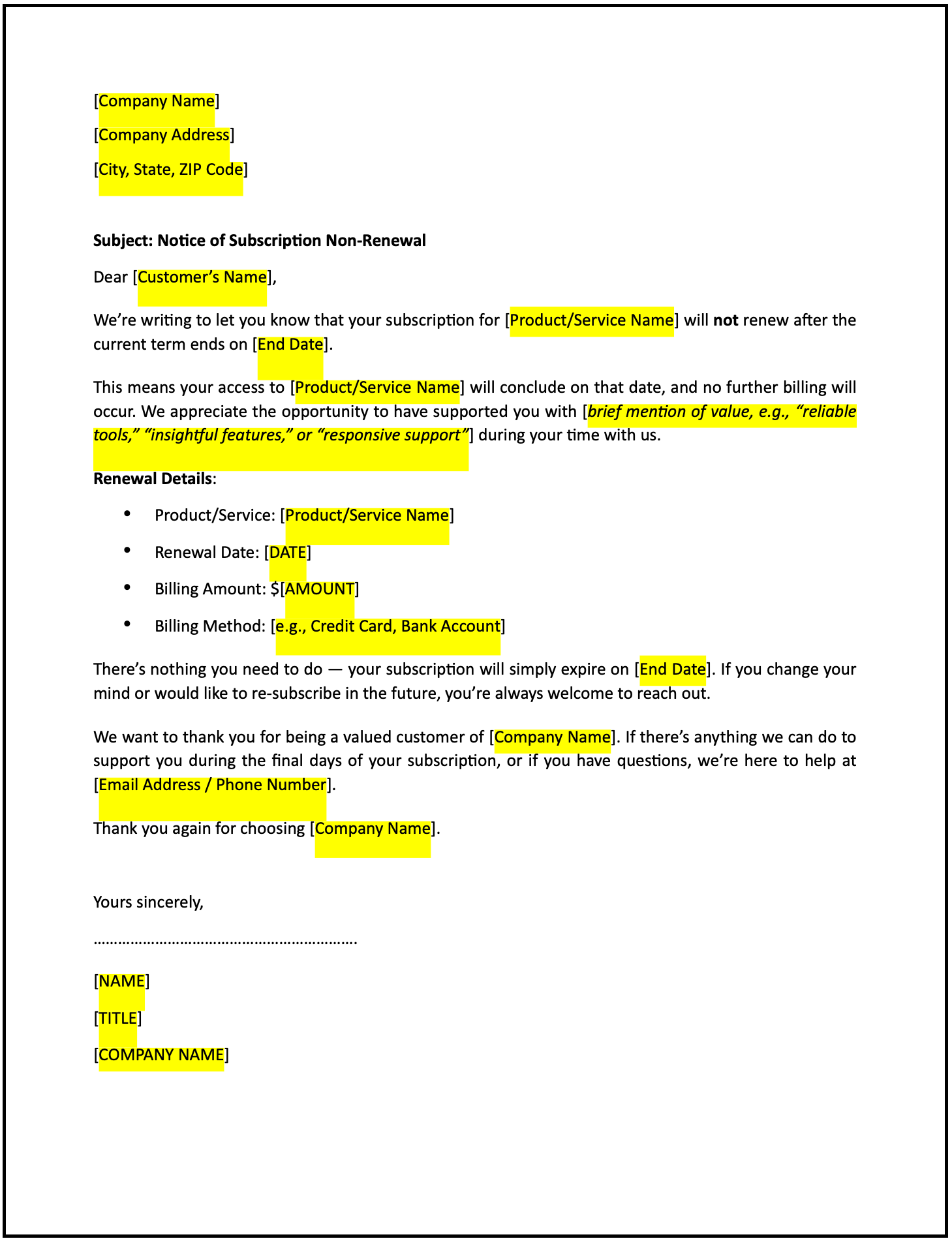Letter of request for updated emergency contact details: Free template

Letter of request for updated emergency contact details
A letter of request for updated emergency contact details is a formal way to ensure that an organization has accurate and up-to-date information in case of emergencies. This letter emphasizes the importance of maintaining current records while fostering a professional and supportive approach.
How to use this letter of request for updated emergency contact details
- Open with the purpose: Begin by explaining that the letter is to request updated emergency contact details for organizational records.
- Highlight the importance: Emphasize how having accurate emergency contact information ensures employee safety and proper communication during urgent situations.
- Provide instructions: Clearly outline how employees should submit their updated details, such as through an online form, email, or HR department.
- Include a deadline: Specify a reasonable timeframe for submitting the updated information to ensure compliance.
- Maintain a professional tone: Ensure the letter is respectful and supportive, focusing on the importance of preparedness.
- Provide contact information: Include details for employees to reach out with questions or assistance regarding the request.
Benefits of using a letter of request for updated emergency contact details
This letter template ensures a structured and professional way to gather emergency contact information while fostering clarity and compliance. Here’s how it helps:
- Promotes preparedness: Ensuring updated contact details enhances the organization’s ability to respond effectively during emergencies.
- Encourages engagement: Highlighting the importance of safety fosters a sense of responsibility among employees.
- Reflects professionalism: A well-crafted letter demonstrates the organization’s commitment to employee well-being.
- Supports compliance: Maintaining accurate records aligns with legal and organizational requirements.
- Provides documentation: A formal record of the request is valuable for HR and administrative purposes.
Tips for writing an effective letter of request for updated emergency contact details
- Be specific: Clearly describe the information being requested, such as names, phone numbers, and relationships of emergency contacts.
- Use professional language: Maintain a respectful and encouraging tone to foster cooperation.
- Highlight the purpose: Emphasize the importance of accurate emergency contact details for safety and communication.
- Include next steps: Provide clear instructions on how and where to submit the information.
- Keep it concise: Focus on the key points while ensuring the tone is positive and professional.
Frequently asked questions (FAQs)
Q: What details should I include in this letter?
A: Include the purpose of the request, specific information needed, submission process, deadline, and support resources.
Q: Should I personalize the letter?
A: Addressing employees collectively is sufficient for this type of request, though personalization is optional for smaller teams.
Q: Who typically sends this letter?
A: The HR department or administrative team usually sends this letter.
Q: How formal should this letter be?
A: The tone should be professional yet supportive, focusing on clarity and safety.
Q: When should this letter be sent?
A: Send the letter during routine record updates or when organizational changes make it necessary.
Q: Can this letter include a form for submission?
A: Yes, attaching a form or providing a link to an online form streamlines the process for employees.
Q: Is acknowledgment from the recipient required?
A: While not mandatory, requesting acknowledgment ensures employees are aware of and respond to the request.
This article contains general legal information and does not contain legal advice. Cobrief is not a law firm or a substitute for an attorney or law firm. The law is complex and changes often. For legal advice, please ask a lawyer.


